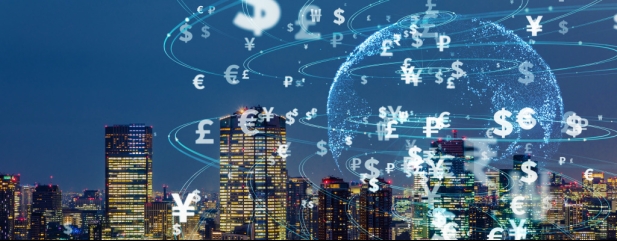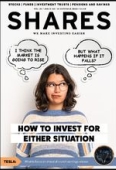Archived article
Please note that tax, investment, pension and ISA rules can change and the information and any views contained in this article may now be inaccurate.
Why do companies buy their own shares and does it add value?

Share buybacks have increased greatly in popularity in the last 20 years as companies look for ways to boost their earnings per share other than through their operating performance.
However, do buybacks actually add any value for shareholders or are they a gimmick?
HOW AND WHY TO COMPANIES BUY THEIR OWN SHARES?
As we have explained in previous articles, ordinary dividends and special dividends are distributed from free cash flow left over after companies have paid for their operating costs, paid the interest on their debt, invested in maintenance spending and made any growth investments.
Sometimes, if a company can’t find a suitable investment, rather than spend the money on an acquisition just for the sake of it, it will use its surplus cash to buy back some of its shares.
Once it has bought them back, it can either keep them for its employee pension scheme or it can cancel them, reducing the amount of shares in circulation.
The benefit of doing this is that earnings per share increase as the number of shares decreases, and each remaining share is worth more
although the value of the business as a whole doesn’t change.
To use a simple example, if a firm has a market value of £1 billion made up of 100 million shares worth £10 each, and it has £100 million of cash which it uses to buy back 10% of its shares, then the remaining shares are technically worth 11.1% more than they were so the value of the company stays the same.
Most of the time news that a company is buying back shares does generate a rise in the share price, partly as a function of the reduction in the number of shares and partly because the market sees buybacks as a sign the management has confidence in the future.
HOW DO FIRMS DECIDE WHAT TO DO WITH THEIR CASH?
Most sensible companies set out their priorities regarding capital allocation clearly so that investors know what to expect.
Staffing company Hays (HAS) likes to remind shareholders on a regular basis how it spends its free cash flow.
‘The board’s priorities for free cash flow are to fund the group’s investment and development, maintain a strong balance sheet, deliver a sustainable and appropriate core dividend and to return cash to shareholders in the most appropriate form.’
Over the past 10 years, Hays has returned roughly £750 million to shareholders through dividends and just under £50 million in share buybacks with more to come this year.
WHAT ARE THE ADVANTAGES AND DISADVANTAGES OF BUYBACKS?
One advantage of buying back shares as opposed to distributing cash through dividends is that investors don’t pay tax on share buybacks, whereas they do on dividend payments, so returning cash through a buyback is tax efficient for shareholders.
Buybacks also technically reduce a company’s cost of capital, as interest earned on cash is taxable whereas interest paid on debt can be deducted from tax.
One downside, as alluded to earlier, is that any cash paid out isn’t being invested in growing the business, but if management can’t find any attractive opportunities it is better that they buy back their own shares than waste the money on a poor investment.
While earnings per share and return on equity increase after a buyback due to a reduction in the amount of shares (equity) in circulation, the intrinsic value of the business doesn’t change.
However, there is a danger that the pressure on companies to continually meet short-term earnings targets means they use buybacks to bump up earnings at the expense of investing in the business for the long term.
WHAT DOES BUFFETT THINK ABOUT BUYBACKS?
Legendary investor Warren Buffett often uses the example of his holding in payments firm American Express (AXP:NYSE) to explain the merits of share buybacks.
In 1998, Buffett’s investment company Berkshire Hathaway (BRK.B:NYSE) owned around 150 million shares or an 11.2% stake in American Express.
Without buying a single share since 1998, Berkshire now owns 20% of American Express thanks to the company buying back its own shares, on top of which it has received quarterly dividends.
As Buffett himself puts it: ‘That happens to have worked out extremely well’.
Interestingly, for decades Buffett resisted buying back shares in Berkshire itself because he said he saw better opportunities in the market.
However, that changed in 2018 when Berkshire bought back more than $1 billion of its own stock.
In 2019 that increased to nearly $5 billion, and since the beginning of 2020 the firm has bought back more than $50 billion of its own shares.
We can see two possible reasons for the change of heart.
First, Buffett and his co-manager Charlie Munger admitted publicly a few years ago they were struggling to find ‘value’ in the stock market, and presumably they felt Berkshire shares were undervalued.
Second, the firm had built up a significant cash pile, which wasn’t adding any value but was at risk of being eaten away if inflation ever picked up, which of course it has.
Important information:
These articles are provided by Shares magazine which is published by AJ Bell Media, a part of AJ Bell. Shares is not written by AJ Bell.
Shares is provided for your general information and use and is not a personal recommendation to invest. It is not intended to be relied upon by you in making or not making any investment decisions. The investments referred to in these articles will not be suitable for all investors. If in doubt please seek appropriate independent financial advice.
Investors acting on the information in these articles do so at their own risk and AJ Bell Media and its staff do not accept liability for losses suffered by investors as a result of their investment decisions.

 magazine
magazine








